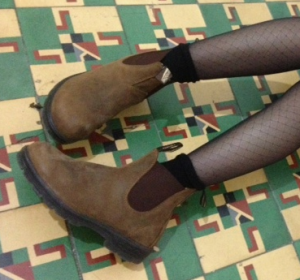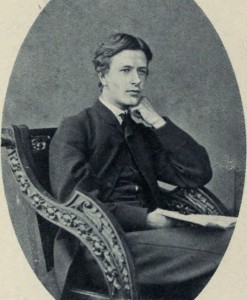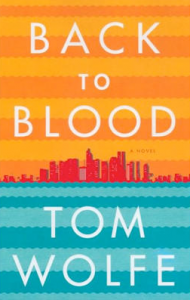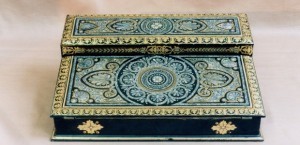The Paris Review's Blog, page 871
November 21, 2012
Letter from Tel Aviv: Love and Rockets
It’s prime rocket-time in Tel Aviv and I have to pee. This is a totally legitimate concern, but one which I am still not able to bring up to my Israeli friends: bathroom timing. The last place you want to be during a rocket is the bathroom, I hear. The tiles and glass make it really, really dangerous. We only get one, maybe two sirens a day in Tel Aviv. So the chances are pretty slim. But can you imagine how embarrassing it would be to explain that to someone? “These scars I earned during the bombing of 2012, while I was on the can.”
The first time I heard a bomb siren all I could think was “The VengaBus is Coming.” I was in a café in the north of Tel Aviv, trying to read a menu upside-down. (I’m learning Hebrew.) There had been news of escalated bombings in the south, but that was all very far from Tel Aviv. Well, nothing is particularly far geographically in Israel, but Tel Aviv is a world away. The city has a way of blocking out the din of conflicts within Israeli society, as well as pressures from the antagonistic forces surrounding its borders. The pathological determination of the Tel Avivi not to let anything fuck with their shit is hard to underestimate. It’s a bit like the way girls look straight ahead when they don’t want to acknowledge some creepy guy doing the “psst, psst” holler from a moving car. Read More »
Stephen King: The Musical, and Other News
It’s a David and Goliath story, if David were also pretty tall: the Tolkien Estate is suing Warner Brothers for a cool eighty million dollars over online slot machines and other digital merch that they claim violates copyright.
In more literary retirement news: Hungarian Nobel laureate Imre Kertész is also calling it a day.
Jennifer Egan, Roxana Robinson, Philip Gourevitch, John Burnham Schwartz, Jane Green, Michael Cunningham, Nick Flynn, Mary Morris, and Darin Strauss all have a mammoth group cameo in Michael Maren’s forthcoming film, A Short History of Decay.
Because numerous bookstores are refusing to stock titles from the Amazon imprint, one of its authors claims that his book The 4-Hour Chef is “poised to be the most banned book in U.S. history.” Dubious.
Presented sans comment: “Elvis Costello and Sheryl Crow will both be singing on the soundtrack of a ghostly musical written by Stephen King and John Mellencamp.”
November 20, 2012
Early Promise
You may be familiar with Robert Bridges, who served as England’s Poet Laureate. But chances are, you are unfamiliar with the work of Digby Mackworth Dolben, a school friend of Bridges’s who died at only nineteen. An eccentric and a zealous Anglo-Catholic, long after his death Dolben continued to exercise a compelling hold over his circle, which included Gerard Manley Hopkins. In 1915, Bridges had published a volume of his school friend’s poetry. As Carl Miller writes in the Public Domain Review,
The Poems of Digby Mackworth Dolben does have a curious interest of its own. The poems themselves are indifferent, at best the juvenilia of an artist whose promise had been thwarted by an early death, but Bridges introduced them with a lengthy memoir that depicts Dolben’s strangely troubled life with understated skill.
After his premature death by drowning, Hopkins (into whose relationship with the young men many a scholar has looked) wrote, “there can very seldom have happened the loss of so much beauty (in body and mind and life) and of the promise of still more as there has been in his case.”
The Art of Friendship
Philia, the root of Philadelphia, roughly translates to “friendship” in Aristotle’s Nicomachean Ethics, an enduring source for understanding the ethics of friendship. Aristotle identifies three essential bases for friendship: utility, pleasure, and virtue. Friendships of virtue, Aristotle believes, are ideal because only they are based on recognition.
When I was thirty, I moved back to Philadelphia. I had only been gone a few years, and though I knew better, I had half expected it to be just as I’d left it. It was not: most of my friends had left the city altogether or moved, married, to the edges of town. Occasionally, I would run into people I had once known, encounters that produced deep and surprising embarrassment in me; unexplained life choices digested in fast, always alienating, appraisal. The more unsettling thing was that my close friendships were changing, too.
Friendship has never seemed both more important and less relevant than it does now. The concept surfaces primarily when we worry over whether our networked lives impair the quality of our connections, our community. On a nontheoretical level, adult friendship is its own puzzle. The friendships we have as adults are the intentional kind, if only because time is short. During this period, I began to consider the subject. What is essential in friendship? Why do we tolerate difference and distance? What is the appropriate amount to give? And around this same time, I discovered the curious, decades-long friendship between the writers Sherwood Anderson, Theodore Dreiser, and the sculptor Wharton Esherick. Their relationship seemed to me model in some ways; they were friends for over twenty years, mostly living in different cities. Each man was dedicated to pursuing his own line of work, and the insecurities and single-mindedness of ambition seemed analogous too to the ways that adulthood can separate us from our friends.
The Bad Sex in Fiction Award 2012: Shortlist
The Literary Review has released the shortlist for the twentieth annual Bad Sex in Fiction Award. The nominees for achievement in terrible sex writing include:
The Yips, by Nicola Barker
The Adventuress, by Nicholas Coleridge
Infrared, by Nancy Huston
Rare Earth, by Paul Mason
Noughties, by Ben Masters
The Quiddity of Will Self, by Sam Mills
The Divine Comedy, by Craig Raine
Back to Blood, by Tom Wolfe
Mr. Wolfe, you will recall, is a previous winner, having taken top honors in 2004 for I Am Charlotte Simmons. He was deemed eligible for this year’s awards by dint of passages like the following:
But then the tips of her breasts became erect on their own, and the flood in her loins washed morals, despair, and all other abstract assessments away in a cloud of some sort of divine cologne of his. Now his big generative jockey was inside her pelvic saddle, riding, riding, riding, and she was eagerly swallowing it swallowing it swallowing it with the saddle’s own lips and maw—all without a word.
Bad, assuredly. But is it bad enough to take the prize? Find out on December 4. Until then, follow the process via @lit_review. (The tweets are tagged as #LRBadSex2012.)
And for a glimpse into the judging process, check this out:
The Year 476: An Illustrated Panorama
History is full of linchpin dates around which the world is said to have pivoted. The year 476 is touted as the momentous one in which the Roman Empire fell and the world descended into a dark administrative vacuum inhabited by pillaging, horned demons. The reality is that, after blowing through dozens of emperors over the course of a generation, 476 was simply the year in which the ceremony of crowning yet another emperor didn’t seem worth the cost or trouble, and everyone stayed home.
What is usually absent from the “Rome fell” story is that the eastern half of the Roman Empire flourished for another thousand years. In fact, 476 was when things were just getting interesting.
The sixth-century historian Procopius wrote about his contemporaries in eastern Byzantine Rome in two works: one famous, one infamous. The first, the official history, paints a rosy picture of Emperor Justinian and his imperial accomplishments. The second, the “Secret History,” describes Justinian; his empress, Theodora; and their bosom companions General Belisarius and his wife, Antonina, as wicked, conniving, and so outrageously scandalous and beastly that the whole work has to be read as an act of either revenge or farce. Needless to say, the second one is a delight to read.
The following panels are culled from both works, and from lore about the period: a miscellany on the exciting century that followed 476.
Jason Novak works at a grocery store in Berkeley, California, and changes diapers in his spare time.
George Eliot’s Desk Stolen, and Other News
George Eliot’s writing desk has been stolen from the Nuneaton Museum and Art Gallery in Warwickshire. (It’s a lap desk, so that was easier than it sounds.) A local councillor calls the theft “a low blow.”
“This event, mixing an author and an apartment, is just one of many such gatherings that have taken place at buildings across Manhattan in recent months.” Come for the reading, stay for the pricey real estate! Take heart from the fact that books are … bait?
Look on his works, and tremble: all Tom Wolfe’s books, arrayed.
In case you were wondering, Helen Vendler is reading John Ashbery and D. A. Powell. Among others. No novels, though! “If you like the precision and concision of poetry a page of prose is unsatisfying in a certain way.”
“We liked the the double meaning of weather and communication,” says Jay Schwartz of Dictionary.com, which has named bluster its word of 2012.
November 19, 2012
Happy Birthday, Sharon Olds!
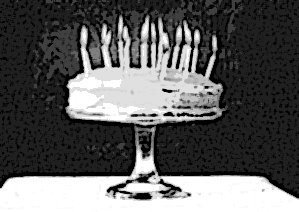 “Writing or making anything—a poem, a bird feeder, a chocolate cake—has self-respect in it. You’re working. You’re trying. You’re not lying down on the ground, having given up.” —Sharon Olds, 2004
“Writing or making anything—a poem, a bird feeder, a chocolate cake—has self-respect in it. You’re working. You’re trying. You’re not lying down on the ground, having given up.” —Sharon Olds, 2004
Hatchet Job: When Bad Reviewers Go Good
 In February of this year, Adam Mars-Jones, an English writer not much known in this country, won the inaugural Hatchet Job of the Year award for his review of Michael Cunningham’s Nightfall: “And a two-person epiphany has to outrank the single kind. Two comely young people standing in the lake shallows, ‘looking out at the milky haze of the horizon’—that’s not an epiphany, that’s a postcard.”
In February of this year, Adam Mars-Jones, an English writer not much known in this country, won the inaugural Hatchet Job of the Year award for his review of Michael Cunningham’s Nightfall: “And a two-person epiphany has to outrank the single kind. Two comely young people standing in the lake shallows, ‘looking out at the milky haze of the horizon’—that’s not an epiphany, that’s a postcard.”
Geoff Dyer, another English writer, much better known since 2008’s Death in Venice, Jeff in Varanisi brought most of his strange work back into print, was nominated for his attack on Julian Barnes’s The Sense of an Ending:
Later, after Tony has broken up with his girlfriend, Adrian commits suicide. This would be my first objection. Obviously people commit suicide, for a variety of reasons, but in fiction they tend to do so primarily in the service of authorial convenience. And convenience invariably becomes a near-anagram of contrivance.
The impulse behind good bad reviews is not much understood, and whether understood or not, is usually disliked or dismissed. It’s considered ungenerous, as though generosity could never be misplaced. Read More »
Win Lovely Gloves with a Brave New Turkey
The enormous room on the ground floor faced towards the north. Cold for all the summer beyond the panes, for all the tropical heat of the room itself, a harsh thin light glared through the windows, hungrily seeking some draped lay figure, some pallid shape of academic goose-flesh, but finding only the glass and nickel and bleakly shining porcelain of a laboratory. Wintriness responded to wintriness. The overalls of the workers were white, their hands gloved with a pale corpse-coloured rubber. The light was frozen, dead, a ghost. Only from the yellow barrels of the microscopes did it borrow a certain rich and living substance, lying along the polished tubes like butter, streak after luscious streak in long recession down the work tables. —Brave New World
As should be perfectly obvious from the above quote, we are giving away a pair of cozy, woolen Etre gloves (made by one of the last British glove manufacturers) to the person who can make the best, most apt Thanksgiving turkey from Aldous Huxley’s handprint. Will your turkey be chrome yellow? Savage? Dystopian? Psychedelic? Whatever your motif, send your turkey, be it photoshopped, collaged and scanned, handpainted, to contests@theparisreview.org by December 1st.
The Paris Review's Blog
- The Paris Review's profile
- 305 followers


